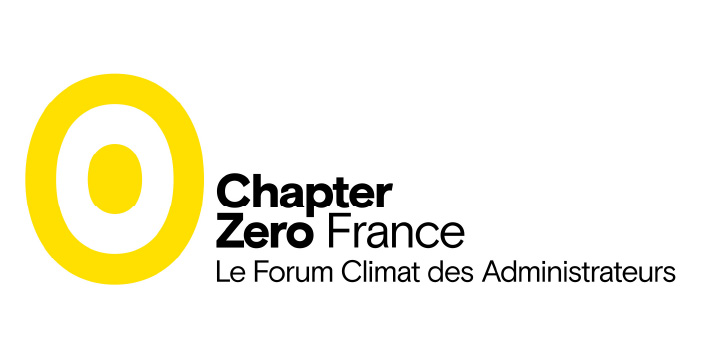Date: 25 March 2021

Host:
Chapter Zero France
Panellists:
- Julie Ansidei – Head of Strategy and Sustainable Finance, AMF
- Michele Lacroix – Head of Investment Risk & Sustainability, SCOR
- Meryam Omi – Head of Sustainability and Responsible Investment Strategy, Legal & General Investment Management
- Sylvain Vanston – Group Head of Climate Change and Biodiversity, AXA
Moderator:
Eric Dugelay – Partner, Sustainability Services, Deloitte
In this session of the CGI’s Global Summit, Chapter Zero France hosted a panel which discussed the role of the Taskforce on Climate-Related Financial Disclosures (TCFDs) in driving effective board behaviour.
The TCFD is built on four threads: governance; strategy; risk management; metrics and targets. The conversation focused mainly on the ‘governance’ thread, which requires boards to implement processes to stay informed about climate issues, consider climate issues in their broader business model, and oversee progress against climate goals and targets. It also addressed risk management, and the importance of taking a holistic approach to climate risks including both physical and transition risks.
“The TCFD tends to be risk-orientated… but it’s an opportunity story,” explained Meryam Omi, head of sustainability and responsible investment strategy at Legal & General. “It’s about how your company will transition successfully into the low-carbon economy. And that involves implementing and learning from the TCFD – which can be challenging.” Producing TCFD reports, for example, involves many different parts of an organisation, including the board – and often, board members don’t have the expertise to understand and challenge the climate scenario analysis that’s been developed by management.
The regulatory community, including the French Markets Authority, have recognised the importance of the TCFD and are increasingly shifting towards including the TCFD when it comes to drafting guidelines and rules.
TCFD does pose some challenge to businesses, the standard of reporting varies greatly between organisations, and there is little harmony in the metrics being used in TCFD reports. The panellists argued that it is worth pushing through with, because TCFD reporting can lead to reputational benefits for companies (if those reports are legitimate, accurate, and persistent).
The Climate Governance Initiative and other networks can help increase board understanding of TCFD reports through a number of tools, including peer networking, toolkits and information on navigating climate change in the boardroom, as well as through events to share views and learnings on climate issues.
It’s not only an internal business matter; TCFD reporting is becoming important to investors, the panel observed. In addition to producing their own reports, investors are using corporate TCFD reports to help guide investment decisions. Various tools and methodologies allow investors to assess companies’ climate reporting and compare this to peer companies. Investors will use this information to engage with companies, appoint directors, and ultimately to allocate assets. Reporting in line with the TCFD can therefore be vital to attracting capital and maintaining a good relationship with investors.